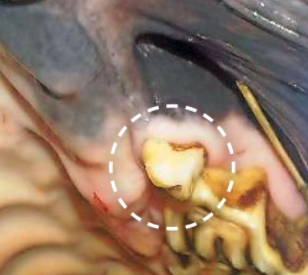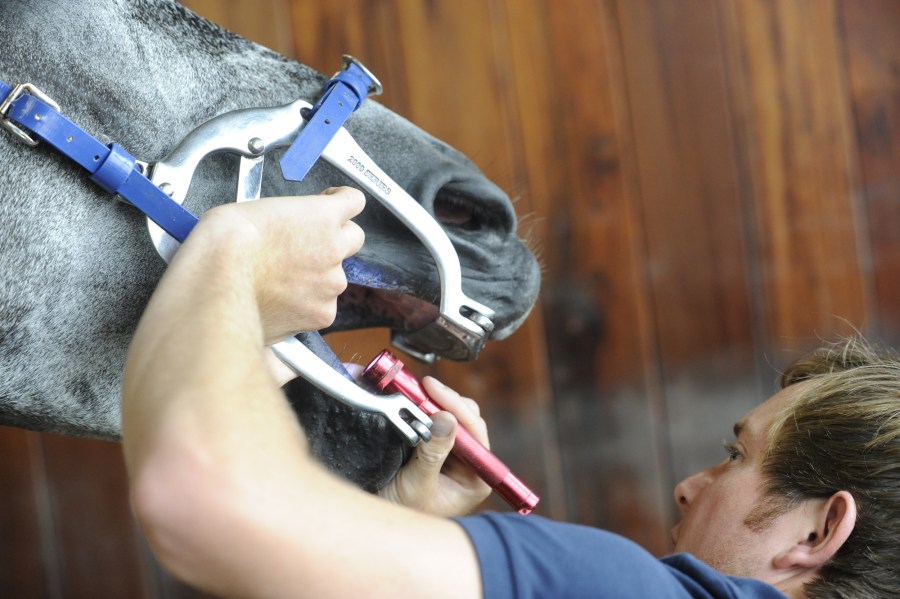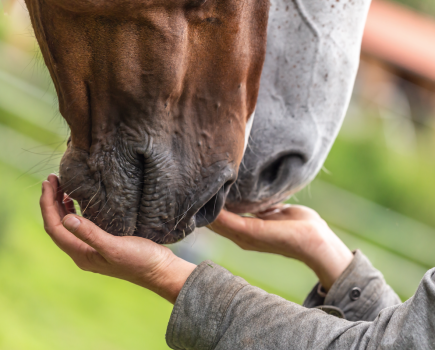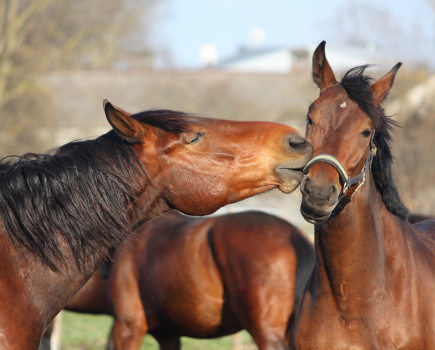Wolf teeth in horses can cause problems for some equines, but not others — and ultimately that is the question that needs to be answered when considering whether to remove them in the interest of your horse’s health and comfort.
Wolf teeth are often routinely extracted, with some service providers believing that no wolf teeth ever did any good and may cause trouble for the horse in the future. Others elect to take action only if a problem with these teeth develops. Ultimately, the decision falls to the person who is responsible for taking care of the horse.
Opinions are likely to remain divided as to whether or not to remove wolf teeth in horses as a matter of course, so you would be best advised to take the recommendations you are given for your own horse from your BAEDT-registered equine dental technician or vet.
What are wolf teeth?
Wolf teeth are small and sit immediately in front of the horse’s first upper cheek teeth. Sometimes, but rarely, they sit in front of the first lower cheek teeth.
They come in many shapes and sizes. Not all horses will have wolf teeth — much like not all people will have wisdom teeth.
“Many young horses are found to have wolf teeth when they first have a bit put in their mouth, but actually most will have erupted by the time they are six to 12 months of age,” says BAEDT-registered equine dental technician Gemma Lilly.
“The horse may even shed their wolf teeth along with the first cheek tooth cap at around two-and-a-half years of age.”

Why do horses have them?
Millions of years ago, wolf teeth in horses were similar in size to the rest of the molars and they were used for grinding and chewing food. Back then, though, horses were forest-dwelling busy eaters, with the cheek teeth being small and narrow — more like those of goats and sheep.
There were seven functional cheek teeth in each ‘arcade’ of teeth, compared to six in today’s horses. As equines have evolved, wolf teeth in horses haven’t and they have no function now.
Why are they a problem?
“Wolf teeth can cause bitting and bridling difficulties in some instances because of where they are located in the horse’s mouth,” explains Gemma. “Some horses demonstrate a clear, repeatable pain response during ridden work with a bit in their mouth, while others are not affected. So whether or not wolf teeth cause a problem is down to individual experience.
“One theory is that sometimes the mouthpiece (bit) directly connects with the wolf tooth during rein contact, which causes the horse pain.”
Removing wolf teeth
Removing wolf teeth is a quick and relatively straightforward surgery that can be done at your yard as part of a routine check. The horse needs to be sedated for the procedure and local anaesthetic is used.
As the gums are highly vascularised (this means that they have lots of blood vessels), expect to see some bleeding — this is normal.
Most wolf teeth extraction sites heal without complication or further visitation required. After tooth removal, your horse will need time off from bitted work until the sockets fully heal and they’re comfortable in their mouth again. This can take two weeks or more.
Is removal always necessary?
“Wolf teeth are often routinely extracted, with some people believing that no wolf teeth ever did any good and may cause trouble in the future,” says Gemma, who runs South West Equine Dentistry and is a BAEDT examiner for the BEVA/BVDA exam board. “Others elect to take action if a problem develops with these teeth.
“Opinions are divided as to whether or not to remove wolf teeth as a matter of course, so you would be best advised to take the recommendations you are given for your own horse from a qualified equine dental technician or vet.”
Find an equine dental technician
Only a vet or qualified equine dental technician should assess and treat your horse’s teeth. The British Association Of Equine Dental Technicians (BAEDT) was founded in 2001 and is an organisation for qualified professional equine dental technicians.
A full list of fully qualified BAEDT Equine Dental Technicians can be found here.









